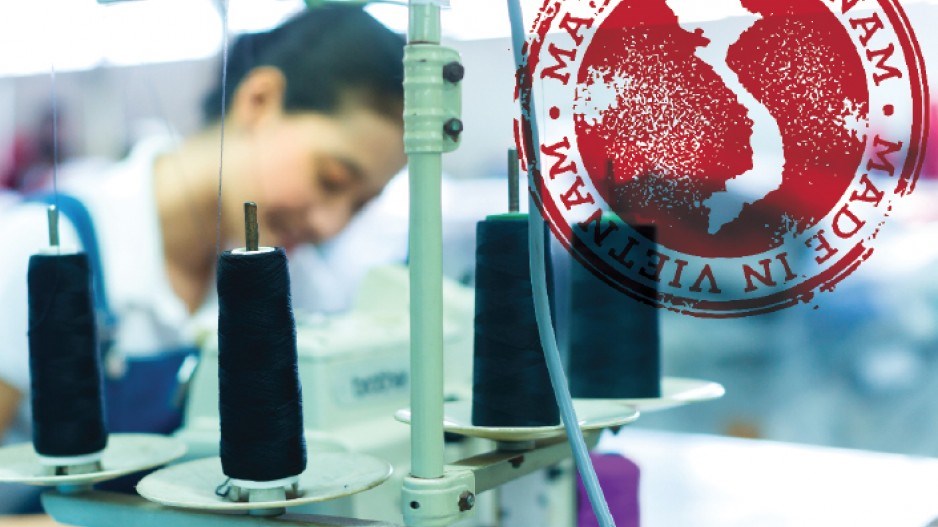In the last two decades of economic reform and opening up to foreign investment, Vietnam’s Communist Party has doggedly followed the trail blazed by its fellow post-Marxists in Beijing.
The landscape is changing, however, as Hanoi seeks a stronger political and economic relationship with the United States, in part as a counterbalance to China’s growing regional power.
That shift is most clearly seen in the keen desire of the Vietnamese government of Prime Minister Nguyen Tan Dung to join the American-led, 11-nation Trans-Pacific Partnership (TPP).
To qualify for TPP membership, however, Vietnam is going to have to abandon Beijing’s root map of maintaining a state-dominated economy behind a screen of capitalism.
The Hanoi government is no more keen than Beijing on privatizing state-owned enterprises (SOE) and permitting accompanying political reform that would lead to the end of the one-party state.
But the lure of TPP membership is huge. Vietnam’s economy has gone off the boil, though its prospects remain good, and membership in the TPP would put it in a minimal tariff club producing 40% of the world’s annual trade turnover.
Vietnam is already one of the world’s leading garment manufacturers. TPP membership would give it unfettered access not only for clothes, but also for footwear, seafood and pharmaceuticals to the large and lucrative U.S. and Japanese markets.
The TPP framework is due to be agreed upon by the end of this year. Current would-be members are Canada, Chile, Japan, Australia, Brunei, Malaysia, Mexico, New Zealand, Peru and Singapore as well as the U.S. and Vietnam.
Although there are no serious threats to Communist Party rule, dissent and unrest has intensified in recent years as inflation has taken hold and the growth rate cooled to 5% last year, its lowest level since 1999.
The Hanoi government has responded with the start of reforms to SOEs.
In September Prime Minister Nguyen promised to treat the 1,300 state-owned companies like any private enterprise, including allowing foreign investors to own up to 49% of local banks.
That is just scratching the surface of the problem. Vietnam’s SOEs represent 70% of the country’s total investment capital, but they produce only 40% of economic output.
They are also enmeshed with the banks. SOEs are recipients of 60% of bank loans and account for 50% of the country’s bad debts.
The latest reports from the TPP negotiations are that Vietnam, as well as Malaysia, Brunei and Peru, which also have SOEs playing major roles in their economies, are being given a reprieve. There is, apparently, a consensus that these countries be given five years to reform their SOEs.
Washington is not just pursuing economic objectives, however. It appears to believe that Hanoi’s wish and need to join the TPP is so great that it can be pushed into making other reforms.
When Vietnam’s President Troung Tan Sang made a state visit to Washington in July he was told by the White House that his country would be invited to join the TPP only if its leaders show a sustained commitment to improving their human rights record.
Unlike China, Hanoi has been reasonably tolerant of the creation of political groups outside the Communist Party. Its efforts to control dissent on the Internet, to which 95% of Vietnamese aged between 15 and 22 have access, have been far less obsessive and successful than those of Beijing.
But the jailing earlier this month on clearly spurious tax evasion charges of human-rights lawyer Le Quoc Quan has received much publicity in the U.S. and will undoubtedly affect TPP negotiations. •
Reducing Canada’s trade deficit with Vietnam is fraught with business risk
It is probably not appropriate to give way to feelings of national pride now that B.C. bud has been revealed to be the marijuana of choice for Vietnam’s growing population of young, well-heeled pot smokers.
However big the market for B.C.’s powerful and expensive pot – it sells in Hanoi for $45 a gram, over four times its street price here – it is unlikely to make a major dent in Canada’s massive trade imbalance with Vietnam.
In the first six months of this year, Canadians bought nearly $900 million worth of Vietnamese goods and sold only just under $200 million.
It would need a veritable Starbucks-sized chain of cannabis cafés in Vietnam, and a larger and wealthier middle class, to overcome that $700 million deficit.
And, anyway, as a significant portion of Canada’s marijuana grow-op industry is believed to be in the hands of Vietnamese immigrants, who adapted their knowledge of hydroponic agriculture learned in the Mekong Delta to their new environment.
With those cultural links, Canada’s pot producers and traffickers are in a much stronger position to take advantage of the challenging Vietnamese market than are other Canadian would-be exporters.
The federal government’s Export Development Canada (EDC) is temperamentally inclined to look on the bright side of overseas opportunities. Not so with Vietnam.
The EDC’s latest briefing on Vietnam almost has flashing warning signs attached, but not quite.
The short-term risks of doing business there include the prospect of a new bout of serious inflation, difficulty in getting payments for services and goods – especially from small and medium-sized private enterprises – and dealing with debt-laden banks and state-owned enterprises.
The medium and long-term prospects don’t look much brighter, according to the EDC.
Years of “rampant credit growth and poor governance” have piled much dead-weight baggage on the economy dominated by state-owned enterprises (SOEs). Infrastructure remains inadequate despite years of investment, and dealing with the bureaucracy can be a nightmare.




